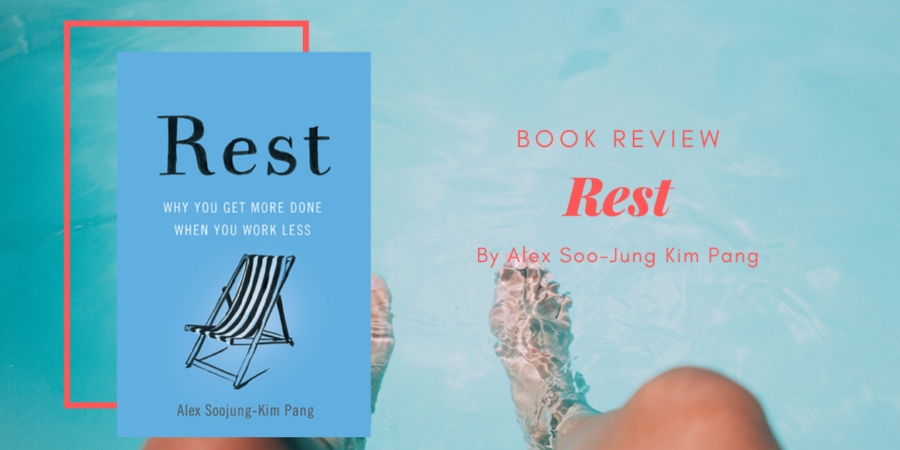I heard about this book from Tim Harford’s blog and was immediately intrigued because… I like rest but I also like creativity. And now that I’ve got a bit more time thanks to the fact that I’m lowering my handphone use, I’m also looking to see if there any changes I can make to have a more balanced and (eventually) creative life – I’d love to get back the daily writing habit I had! One challenge, however, is the fact that I feel so tired after a day of work.
With that in mind, it’s no surprise that the first thing I picked up from this book is that we can only do about four hours of creative work at one time. So if I end up spending all my thinking energy on work, it’s no wonder that I can’t think of the words for stories when I come back.
But the number of hours of work we can do is only one part of the book. After considering the problem and science of rest, the book looks at the ways we can stimulate and sustain creativity. Under stimulating creativity, we have:
- Four hours – as mentioned above
- Morning routine – the best work tends to be done in the early mornings, even for night owls.
- Walking – walking can help loosen inhibitions to creative thinking and give us insights that we’ve been mulling on in our subconscious. Don’t worry if you don’t live near nature, one of the studies by Oppezzo and Schwartz showed that walking on a treadmill in a room has almost the same effect as walking outside in nature.
- Nap – If Churchill can nap while leading Britain during WWII, you can too. In practical terms, tailoring naps to your sleep cycle can help you be more creative, have a better memory, or feel more refreshed. I don’t think I can start napping at work but if I ever take a sabbatical, I’ll be going back to this chapter to structure some nap time in.
- Stop – Stop when you know your next step. This is advice that I hear from lots of writers as well and one that I try to practice.
- Sleep – Are you surprised that sleep is only one chapter in this book on rest? I was because I associate rest with sleep. According to the book, sleep is important (it helps you recover from the day and your brain is actually really active while sleeping) and can be used to help creativity (learn to master the time just after you wake up like Dali)
For sustaining creativity, we have:
- Recovery – You need four things to recover from work: relaxation, control (especially if your daily schedule doesn’t give you much control over your time or activities), mastery experiences, and a mental detachment from work.
- Exercise – Did you know that “exercise generally has indirect and positive effects on creativity”? Plus, physical stamina matters for mental work as well.
- Deep Play – Hobbies that use skills you want to sharpen but are definitely not work actually help your work (and prevent burnout)
- Sabbaticals – Even short sabbaticals can be energising if done right. They should be in an environment that is new but not alienating, intellectually stimulating, and detached from regular life, among other tips.
There was a lot of practical advice here on resting, but what helped change my attitude towards rest a bit more were these lines from the start of the book:
“Productivity books offer life hacks, advice about how to get more done, or stories about what CEOs or famous writers do. […] When they do mention rest, they tend to treat it as nothing more than a physical necessity or inconvenience. Books about rest or leisure, meanwhile, seem mainly interested in escaping work, not improving your ability to do meaningful work. […] As a result, we see work and rest as binaries. Even more problematic, we think of rest as simply the absence of work, not as something that stands on its own or has its own qualities.”
The book goes on to talk about how our tendency to see our self-worth in work means that we find ourselves unable to properly rest because we associate rest with idleness and hence, a lowering of our self-worth. I have felt guilty for simply taking time to watch a movie (instead of blogging or reading or writing) so I definitely understand that way of thinking. Although a movie may not be the most productive form of rest that there is.
While I don’t think I can implement naps or wake up earlier without throwing the rest of my routine off-balance, I am planning to incorporate more exercise into my life (especially walking) and figure out if, apart from blogging, there are any activities I can do as ‘deep play’. I’d recommend this book for anyone looking for ways to achieve more balance and/or creativity in their lives.
Featured Image: Photo from Canva Library
